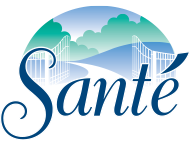The best addiction treatment facilities offer a variety of therapy environments for client recovery. Group therapy, involving one or more therapists working with several clients at the same time, is one of the most helpful therapies for addiction treatment. Alongside peers early in their recovery, you’ll gain a better idea of your addiction, healthy behaviors, and relationships. You’ll also learn to tolerate others and socialize in healthy ways.
Why Group Therapy Works
Led by a trained professional, group therapy involves two or more people and is designed to target a specific problem. In a residential level of care, some group therapy sessions take place within a treatment center, while others take place during or after outdoor activities. It’s effective during various levels of addiction treatment services, such as:
- Inpatient rehab
- Partial hospitalization
- Outpatient
- Intensive outpatient
- Aftercare programs
Typically, groups meet for an hour or two at least weekly. For individuals seeking lasting drug and alcohol addiction recovery, group therapy is vital. This is particularly true when it’s coupled with individual counseling sessions. In a one-on-one setting, participants can more deeply explore topics discussed in group therapy according to their individual needs.
Group therapy offers many advantages, including:
- Exploration of educational topics
- Peer support and motivation
- Observation of how others progress in recovery
- Peer motivation and encouragement
- Problem-solving skill development
- Accountability
- Serving as sounding board
- Group empowerment through feedback
- Healthy coping skills education
- Development of a healthy routine, structure, self-esteem, optimism, and relationships
- Realizing you’re not alone
- Hearing how others tackle problems and make positive changes
Will Group Work for You?
It may sound intimidating to think about talking and sharing within a group, but the rewards far outweigh perceived risk. The group therapy experience can be incredibly rewarding and powerful.
When you’re in detox or rehab for addiction and other needs, trained professionals will place you in the group that best matches your needs and specific problems. Groups are selected according to your treatment goals, preferences, emotional stability, and recovery stage. Regardless of the group, the goal is the same: for peers in recovery to work together.
Although it’s important for the therapist or counselor to lead the group effectively, you also have to participate and be fully engaged in order for this addiction therapy to work. In these sessions, you will build strong relationships, some that may extend beyond rehab.
Group sessions usually focus on building coping skills that will help you avoid relapse and live a better, more fulfilling life in recovery. Common topics include:
- Type of addiction
- Handling triggers and temptations
- Shame resiliency
- Grief and loss
- Trauma resolution
- Building positive relationships
- Communicating better
- Anger management
The 3 Stages of Group Therapy
Throughout your addiction treatment, you’ll progress through three stages of group therapy.
- Beginning Phase – Upon admission and as you acclimate to the group, you’ll become used to the process and learn how group therapy works. You’ll learn the basic rules about confidentiality and format and gain an understanding of the group’s goals.
- Middle Phase – This phase is where the most change happens. You’ll start seeing changes in how you think, behave, and act toward your treatment goals. You also make your strongest and most meaningful connections with your group peers during this time.
- End Phase – During the final phase, you begin to really see your growth in the group. You also explore any concerns or fears you have about your group sessions and/or residential level of care ending.
Finding the Right Recovery Program for Your Needs
Located in Argyle, Texas (just north of Dallas/Fort Worth), Santé Center for Healing integrates group therapy and individual therapy as part of a 12 step program foundation for lasting drug and alcohol recovery. A short drive away and a better alternative to impersonal Dallas or Fort Worth addiction treatment facilities, Santé provides group and other therapies as part of a complete recovery program.
Phases of Santé Center for Healing treatment include:
- Evaluation for three days
- Medical detox for four to ten days
- Residential treatment for 45–65 days or longer
- Intensive outpatient for four months
- Transitional living for three months to two years
- Intensive Therapeutic Workshops for four days
- Life-long Alumni programming and support
A skilled medical and clinical team customizes and tailors your treatment path at Santé Center for Healing. Your treatment plan, medical interventions, modalities, clinical elements, groups, and more are as unique as your needs. This means that how you progress through the program may not be the same as your peers. Many of Santé’s clients are also receiving treatment for the complexities of poly-addiction and dual diagnosis treatment for co-occurring mental illness.
Addiction does not have to be part of your future. Call now to start building the brighter, happier future you deserve. If you or someone you love are ready for lasting recovery, call Santé Center for Healing now at 866.238.3154.

